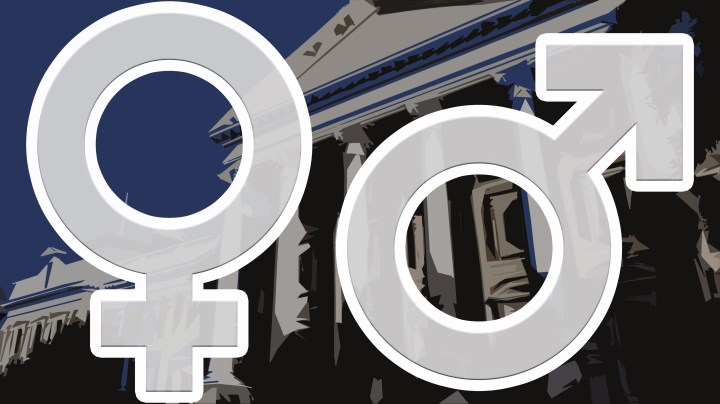GENDER COMMISSION INTERVIEWS
Committee grills candidates to sit on Commission for Gender Equality

A parliamentary committee interviewed 24 shortlisted candidates for eight positions on the Commission for Gender Equality. Ten names have been recommended.
Over 12 and 13 March, a parliamentary ad hoc committee chaired by Claudia Nonhlanhla Ncube-Ndaba interviewed 12 candidates a day for vacancies in Chapter 9 institution, the Commission for Gender Equality.
The functions of the Commission for Gender Equality include “monitoring and evaluating the policies and practices of government, the private sector and other organisations to ensure that they promote and protect gender equality, public education and information, investigating inequality and investigating complaints on any gender-related issues”, according to the 1996 Commission on Gender Equality Act.
Candidates
The short-listed candidates varied in terms of their activism. Some were disability rights activists, one was a sexual reproductive health activist while another advocated for the rights of rural women. The youngest candidate was 26 and the oldest 69.
The short-listed candidates varied in terms of their experience in gender justice work. Some had worked in government departments, some had legal experience, others had administration experience — but all professed a passion for gender equality.
CGE Funding
IFP MP Liezl van de Merwe questioned candidates on how they would work around the lack of funding and resources in the commission.
“My expertise is in public health so I’m used to working with low resources,” said Tlaleng Mofokeng, a medical doctor who focuses on sexual reproductive health. Mofokeng said sexual reproductive health issues were connected with class and racial inequalities.
Mbuyiselo Botha, who was applying for a further term as a commissioner, said that there needed to be “innovative” ways to gain funding.
“We would need to sign MOUs (memorandums of understanding) with donors with the understanding that our independence is sacrosanct,” he said.
Botha was one of the few candidates who said gender issues did not affect women exclusively. His experiences working with community radio, writing for newspapers and co-hosting radio shows meant that he had the knowledge to make the commission’s work accessible.
Partnerships
Many candidates said partnerships were key to ensuring the commission reached communities and was able to make a difference.
“Why can’t we go to shows like Skeem Saam and say, why don’t you have an angle on gender? I watch The Queen and they have a trial now; Goodness is being blamed for her rape,” said Ohara Ngoma-Diseko on the ways that media could be used as a tool to teach. Ngoma-Diseko has worked as a chief director in the Department of Public Service and Administration.
Ngoma-Diseko said she had experience with managing people and understood gender issues.
Others candidates said working with the Department of Education and having school content that taught children about gender would help bring about change.
Candidates were questioned about their thoughts on “perceptions of duplications of mandates” between the Department of Women and the Commission for Gender Equality.
Bhekizenzo Tembe, an advocate who has worked for the KwaZulu-Natal Department of Education, said this was “a weak argument”.
“It’s like arguing because there’s a family advocate in the Department of Justice there’s no need for social workers in the Department of Social Development.”
Asked what could be done to speed up gender-based violence cases, Tembe said:
“Organs of the state are obliged to help (the Commission for Gender Equality) with its mandate.”
Awareness
EFF MP Dr Suzan Thembekwayo asked most candidates how they would change the mindset of the population about gender equality.
Many said this needed to begin with targeting children from a young age. Botha, who has worked with men and boys, emphasised that it would be “remiss to not have men involved; they are the gatekeepers of patriarchy”, and it was crucial that men and boys worked as allies in the fight for gender equality.
Deliberations
“We are not going to be feminist, we need to do what this Chapter 9 institution requires us to do,” said Ncube-Ndaba, on Thursday, 14 March, when the committee met to deliberate on who they would recommend as commissioners.
The committee recommended 10 names for the eight positions. After Parliament has completed its selection process this week, the final appointments will be made by President Cyril Ramaphosa.
The 10 names are: Lindiwe Octavia Ntuli-Tloubatla, Jennifer Smout, Mbuyiselo Botha, Tlaleng Mofokeng, O’Hara Ngoma-Diseko, Nomasonto Grace Mazibuko, Dibeela Gertrude Mothupi, Busisiwe Deyi, Bhekizenzo Tembe, Priscilla Lynnette Fundisile Nzimande. DM


















 Become an Insider
Become an Insider